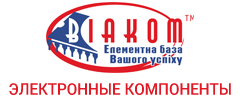Збирач потоків
ISO Optimized Recipes for PCB Photoresist and Developer from China
 | submitted by /u/WumberMdPhd [link] [comments] |
Chip-scale atomic clock shrinks profile height

A low-noise chip-scale atomic clock (LN-CSAC), the SA65-LN from Microchip, features a profile height of less than 0.5 in. (12.7 mm). Aimed at aerospace and defense applications where size, weight, and power are critical, the SA65-LN delivers precise and stable timing, along with low phase noise and atomic clock stability.

Based on Microchip’s Evacuated Miniature Crystal Oscillator (EMXO) and integrated into a CSAC, the SA65-LN consumes under 295 mW. It also operates within a temperature range of -40°C to +80°C, maintaining its frequency and phase stability. Low power consumption and a wide temperature range enable battery-powered operation under extreme conditions.
The LN-CSAC combines the stability of an atomic clock with the precision of a crystal oscillator in a compact design. The EMXO offers low phase noise of <−120 dBc/Hz at 10 Hz and an Allan Deviation (ADEV) of <1E-11 at a 1-second averaging time. The atomic clock provides ±0.5 ppb initial accuracy, frequency drift of <0.9 ppb/month, and temperature-induced errors of <±0.3 ppb.
The SA65-LN is available now in production quantities. It is supported by Microchip’s Clockstudio software tool, a GUI, and developer kit.
Find more datasheets on products like this one at Datasheets.com, searchable by category, part #, description, manufacturer, and more.
The post Chip-scale atomic clock shrinks profile height appeared first on EDN.
Gate drivers serve EV traction inverters

Infineon has added five isolated gate drivers to its EiceDriver family optimized for driving IGBTs and SiC MOSFETs. AEC-qualified and ISO 26262-compliant, these third-generation drivers are well-suited for traction inverters in both cost-effective and high-performance xEV platforms. Additionally, they support Infineon’s HybridPack Drive G2 Fusion module, a plug-and-play power module that combines the company’s Si and SiC technologies.

The 1EDI302xAS series supports IGBTs up to 1200 V, while the 1EDI303xAS series is suited for SiC MOSFETs up to 1200 V. With an output stage of 20 A, the 1EDI3025AS, 1EDI3026AS, and 1EDI3035AS can drive inverters of all power classes up to 300 kW. The 1EDI3028AS and 1EDI3038AS variants have an output stage of 15 A, useful for entry-level battery EV and plug-in hybrid EV inverters. The gate drivers provide reinforced insulation per VDE 0884-17:2011-10, ensuring safe isolation.
All of the single-channel drivers are equipped with a configurable soft turn-off feature for enhanced short-circuit performance. Monitoring functions include overcurrent protection and an integrated self-test for desaturation protection. A continuously sampling 12-bit delta-sigma ADC with an integrated current source can read the voltage directly from temperature measurement diodes or an NTC.
Samples of the 1EDI3025AS, 1EDI3026AS, 1EDI3028AS, 1EDI3035AS, and 1EDI3038AS isolated gate drivers are available now.
Find more datasheets on products like this one at Datasheets.com, searchable by category, part #, description, manufacturer, and more.
The post Gate drivers serve EV traction inverters appeared first on EDN.
Platform eases validation of LPDDR6 memory

Keysight provides an end-to-end LPDDR6 memory design and test platform that improves device and system validation. It includes new test automation tools necessary for advancing AI, especially in mobile and edge applications.

Based on the UXR oscilloscope and M8040A bit error ratio tester, the complete setup includes transmitter and receiver test apps paired with the Advanced Design System (ADS) Memory Designer and EDA software. The LPDDR6 memory standard’s combination of high performance and power efficiency makes it particularly suitable for AI and machine learning workloads, high-speed digital computing, automotive systems, and data centers.
When used for transmitter testing, the platform reduces validation time with fully automated compliance testing and characterization. Engineers can analyze device BER performance with extrapolated eye mask margin testing and achieve accurate signal measurements directly from BGA packages with specialized de-embedding capabilities.
For receiver testing, the setup validates designs using with BER test methodology and pinpoints performance issues by testing against multiple jitter, crosstalk, and noise scenarios. It also ensures interoperability with both device and host controller validation.
The receiver and transmitter solution made its public debut at DesignCon 2025.
Find more datasheets on products like this one at Datasheets.com, searchable by category, part #, description, manufacturer, and more.
The post Platform eases validation of LPDDR6 memory appeared first on EDN.
Step-down converter trims quiescent current

The NEX30606 step-down converter from Nexperia delivers up to 600 mA of output current with an operating quiescent current of just 220 nA. Supporting input voltages from 1.8 V to 5.0 V, the converter offers 16 resistor-settable fixed output voltages and uses constant on-time control for fast transient response.

Ultra-low quiescent current makes the NEX30606 well-suited for consumer wearables like hearing aids, medical sensors, patches, and monitors. It can also be used in battery-powered industrial applications, including smart meters and asset trackers. The converter provides greater than 90% switching efficiency for load currents ranging from 1 mA to 400 mA. Additionally, it has only 10 mV of output voltage ripple when stepping down from 3.6 VIN to 1.8 VOUT.
Nexperia also offers the NEX40400, a step-down converter that combines high efficiency with an operating quiescent current of 60 µA typical. It provides up to 600 mA of output current from a wide 4.5-V to 40-V input voltage range. The device employs pulse frequency modulation for high efficiency at low to mid loads and spread spectrum technology to minimize EMI. Target applications include industrial distributed power systems and grid infrastructure.
Visit the NEX30606 and NEX40400 product pages to check pricing and availability.
Find more datasheets on products like this one at Datasheets.com, searchable by category, part #, description, manufacturer, and more.
The post Step-down converter trims quiescent current appeared first on EDN.
Wolfspeed debuts Gen 4 MOSFET portfolio

Wolfspeed introduced its Gen 4 SiC MOSFET platform, supporting long-term roadmaps for high-power, application-optimized products. Gen 4 offerings include power modules, discrete components, and bare die available in 750-V, 1200-V, and 2300-V classes.

According to Wolfspeed, it is the only producer with both silicon carbide material and silicon carbide device fabrication facilities based in the U.S. This factor is becoming increasingly important under the new U.S. Administration’s increased focus on national security and investment in U.S. semiconductor production.
The Gen 4 platform was designed to improve system efficiency and prolong application life, even in the harshest environments. It is expected to deliver performance enhancements in high-power automotive, industrial, and renewable energy systems, with key benefits including:
- Holistic system efficiency: Delivering up to a 21% reduction in on-resistance at operating temperatures with up to 15% lower switching losses.
- Durability: Ensuring reliable performance, including a short-circuit withstand time of up to 2.3 µs to provide additional safety margin.
- Lower system cost: Streamlining design processes to reduce system costs and development time.
Gen 4 SiC power modules, discrete components, and bare die are available now through Wolfspeed’s distributor network.
Find more datasheets on products like this one at Datasheets.com, searchable by category, part #, description, manufacturer, and more.
The post Wolfspeed debuts Gen 4 MOSFET portfolio appeared first on EDN.
Introducing WiPoSense - STM32WB based PCB design with USB-C PD, high power PWM outputs and wide extension support for sensors
 | submitted by /u/RandoRaido [link] [comments] |
Tried soldering caps for the first time. It worked!
 | No idea what I was doing. Attempted to replace 5 capacitors that split from capacitor plague. Burned myself twice, the whole job was hideous. The Xbox booted up, and it working fine! 10/10 will burn myself again! If you're unsure I'd you can do it or not, just go for it, you can do it! [link] [comments] |
Weekly discussion, complaint, and rant thread
Open to anything, including discussions, complaints, and rants.
Sub rules do not apply, so don't bother reporting incivility, off-topic, or spam.
Reddit-wide rules do apply.
To see the newest posts, sort the comments by "new" (instead of "best" or "top").
[link] [comments]
✍️ Опитування щодо стану дотримання академічної свободи в університетах України
Шановні колеги – педагогічні, науково-педагогічні і наукові працівники!
📈 Вакансії в КПІ ім.Ігоря Сікорського
Cellebrite UFED Touch 2 motherboard - took apart an old cellebrite device.
 | submitted by /u/aspie_electrician [link] [comments] |
For 0.66€ (shipping included, 15 days, aliexpress) i guess i shouldn't complain 🤣
 | submitted by /u/kamen__temeljac [link] [comments] |
Gallium nitride power semiconductors to reach adoption tipping points in multiple industries in 2025, predicts Infineon
Latest issue of Semiconductor Today now available
Runtime security code embedded into IoT chip

A lightweight runtime security code embedded into a system-on-chip (SoC) for Internet of Things (IoT) applications. That’s the outcome of a collaboration between MediaTek and Italy-based embedded IoT security firm Exein. EE Times’ Editor-in-Chief Nitin Dahad spoke to Gianni Cuozzo, founder and CEO of Exein, to know more about this collaboration that ensures security is an integral part of the development process rather than an afterthought.
Cuozzo, who founded the company in 2018 to address the emerging mandatory cybersecurity regulations, claims it’s the world’s first integration between a chip manufacturer and runtime security software. He also claims it’s the lightest runtime agent available, whether running at the edge or the cloud.
Read the full story on EDN’s sister publication, EE Times.
Related Content
- Embedded system security requirements
- Can We Trust AI in Safety Critical Systems?
- Embedded Security: How to Mitigate the Next Attack
- Embedded Analog Systems Present Design Challenges
- Embedded security for hypervisors and system virtualization
The post Runtime security code embedded into IoT chip appeared first on EDN.
VueReal raises US$40.5m in Series C funding round
Some PCB themed art I made
 | submitted by /u/nextuser005 [link] [comments] |
Did some desoldering!
 | submitted by /u/bearsquad_tr [link] [comments] |




